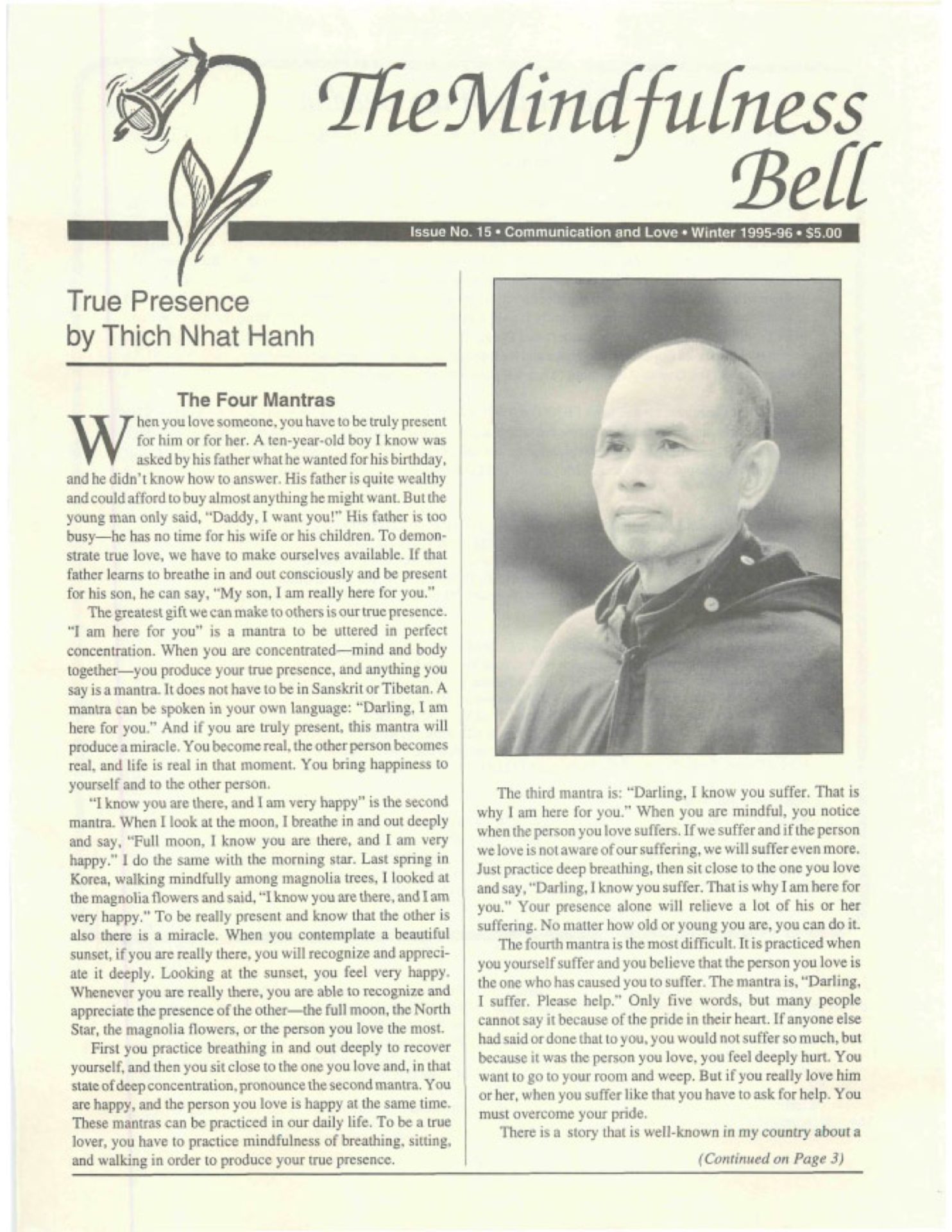By Shuko Maseda
One day my mother gave me the book, Peace Is Every Step. After reading about 30 pages, I found myself reading deeply, as if I were absorbing with my eyes every passage, word, and letter. What was written on the pages had not been taught by anyone, but they were all things being taken for granted in our daily life. My everyday life was so restless and fidgety that I could not even become aware of such daily wonders.
By Shuko Maseda
One day my mother gave me the book, Peace Is Every Step. After reading about 30 pages, I found myself reading deeply, as if I were absorbing with my eyes every passage, word, and letter. What was written on the pages had not been taught by anyone, but they were all things being taken for granted in our daily life. My everyday life was so restless and fidgety that I could not even become aware of such daily wonders. When my heart calmed down, I realized I was smiling unconsciously.
It was a Saturday evening, and dishwashing was to fall on me or my younger sister. We usually decide who will wash the dishes by tossing a token. I don't usually like to wash dishes, but that evening, everything was different. I had read the part "Washing Dishes," and these lines swept away my dull ideas about dishwashing. "The idea that doing dishes is unpleasant can occur only when you are not doing them." This first line astonished me. I said to myself, "This is true! I know I feel tired when I start dishwashing, but soon it changes into fun."
The further I read on, the more deeply I thought. The author said the reason for dishwashing is not only to have clean dishes, but also just to do the dishes, to live fully in each moment while washing them. If we wash dishes lazily, thinking about other things, we lose and spoil the time. But if we wash dishes wholeheartedly, we can get the deep satisfaction that is equal to cleaning the whole house.
That evening I practiced washing—plate by plate—deliberately, concentrating on my breath, letting go of thoughts that came up. I was not annoyed by the noisy sounds from the television. Lastly, after washing away the detergent, I put three pairs of chopsticks into the dish drier and pushed the drier button with great happiness, feeling inexpressibly refreshed. It made me feel as if my feet were made of down, floating lightly in the air. I felt so refreshed that I also did the laundry!
That day I was able to practice mindfulness by engaging in two household chores which gave me a deep satisfaction. Since that day, Thich Nhat Hanh and Peace Is Every Step have been a tremendous and profound influence on me. After reading this book, my heart has become stable and calm. I realize how the author is aspiring to world peace. It is my greatest joy and happiness to have known the master Thich Nhat Hanh through this book.
Shuku Maseda, age 16, lives in Kyushu, Japan. This piece was translated and sent to us by Hisayo Ikeda, the translator of the Japanese edition of Peace Is Every Step.

